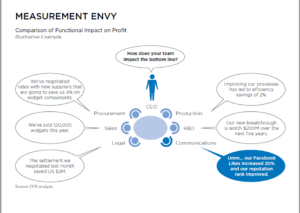Damn obvious, I hear you say. In fact, it’s the simplest of action plans for any function, but it’s also one which is often overlooked or forgotten. As in really often.
Communications, like any other function, is a job with never-ending jobs; updating the intranet, writing articles, preparing speeches, finalizing strategy documents for business units, updating social media accounts, running team meetings, finalizing annual reports, helping colleagues with their presentations, updating templates, and the list goes on and on.
Quite frankly, I enjoy doing all the above – it’s fun, which is why it’s sometimes hard to say no to the constant and persistent requests that come our way.
I also believe in a healthy work balance, and frown upon people’s claims that they are “too busy†– I also wrote a blog piece about that.
However, I appreciate that people face very challenging targets and many companies expect their employees to work that extra bit to prove that they can do it in higher positions. If you ask me, it’s a convenient way for a company to pay less for more. I know – I did it for the greater part of my working life.
Now, I believe that while I should give my utmost, and also work day and night in certain exceptional cases, I also think we really need to prioritize and do the most important jobs first.
I love alliterations, so Prioritize, Plan, Perform is a no-brainer.
- Prioritize
‘Ask the comms guy’ is something that has followed me around for some time. I’m mainly to blame as I like helping people. But there are company priorities that need to be respected, which means that if I prioritize uploading a yammer post on the company party (because colleagues want to see the photos…) rather than deal with finalizing the annual report, something is wrong.
- Plan: The comms goals should also align with and contribute to functional and company goals. This is why you need to plan properly and block your calendar to make sure you get the important things done first. Also, planning helps manage expectations.
- Perform: Once you know what your goals and, you know what you need to do. It sounds simple because it is. A cluttered desk, figuratively speaking, means you’ll probably do the things you see first rather than what is important – or you’ll do nothing at all because you have no idea where to start from. Planning takes two forms – yearly and weekly. The former involved more generic operational planning, while the latter deals with more detailed work on what’s to be done.
It’s easy – no prioritization means an inability to plan (or follow a plan) and hence perform. And remember, other people’s priorities are just that. You will find that people thrown in seemingly super important facts that may make you think that their priorities are more important than yours. That’s rubbish.
Incidentally, if you are organized, you’ll find there is more time to be able to help colleagues with their comms tasks. Start today.

